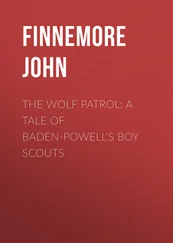Robert Baden-Powell of Gilwell - The Matabele Campaign
Здесь есть возможность читать онлайн «Robert Baden-Powell of Gilwell - The Matabele Campaign» — ознакомительный отрывок электронной книги совершенно бесплатно, а после прочтения отрывка купить полную версию. В некоторых случаях можно слушать аудио, скачать через торрент в формате fb2 и присутствует краткое содержание. Жанр: foreign_antique, foreign_prose, на английском языке. Описание произведения, (предисловие) а так же отзывы посетителей доступны на портале библиотеки ЛибКат.
- Название:The Matabele Campaign
- Автор:
- Жанр:
- Год:неизвестен
- ISBN:нет данных
- Рейтинг книги:5 / 5. Голосов: 1
-
Избранное:Добавить в избранное
- Отзывы:
-
Ваша оценка:
- 100
- 1
- 2
- 3
- 4
- 5
The Matabele Campaign: краткое содержание, описание и аннотация
Предлагаем к чтению аннотацию, описание, краткое содержание или предисловие (зависит от того, что написал сам автор книги «The Matabele Campaign»). Если вы не нашли необходимую информацию о книге — напишите в комментариях, мы постараемся отыскать её.
The Matabele Campaign — читать онлайн ознакомительный отрывок
Ниже представлен текст книги, разбитый по страницам. Система сохранения места последней прочитанной страницы, позволяет с удобством читать онлайн бесплатно книгу «The Matabele Campaign», без необходимости каждый раз заново искать на чём Вы остановились. Поставьте закладку, и сможете в любой момент перейти на страницу, на которой закончили чтение.
Интервал:
Закладка:
Nearly two thousand of them were armed with Martini–Henry rifles. A hundred of the Native Police deserted, and joined them with their Winchester repeaters. Many of them owned Lee–Metfords, illicitly bought, stolen, or received in return for showing gold–reefs to unscrupulous prospectors. And numbers of them owned old obsolete elephant guns, Tower muskets, and blunderbusses. So that in addition to their national armament of assegais, knobkerries, and battle–axes, the rebels were well supplied with firearms and also with ammunition.
In saying that the Native Police deserted and joined the rebels, I must in justice add that it was chiefly the younger members of the force who did so: the old hands remained loyal, and though at first they were disarmed as a precautionary measure, they proved most useful to our side later on, though very few in numbers. Much has been said against them as having been the cause of the revolt, through their overbearing conduct. I am perfectly convinced that the rebellion would have occurred just the same had there been no such body as the Native Police in existence. At the same time, I don’t mean to say that they did not abuse their powers. I should think that they most probably did, but that is no reason why they should incontinently be done away with. I don’t see, for one thing, how proper government of the natives is going to be carried out without a native police: the only thing is that the force must be very closely and effectively commanded. The same difficulty has been encountered, and has thus been dealt with, by us in Natal, in India, in West Africa, everywhere, in fact, where natives form a large proportion of the population.
But I am wandering from my point into discussion and argument, which are not in my line. I am supposed to be giving you a résumé of what had been happening up to the time of Sir Frederick’s taking over command in Matabeleland.
Directly after the outbreak, Colonel Napier, with his usual energy, lost no time in getting together a few men, and, with a party of sixty, he went off to the Shangani, thirty miles north–east of Buluwayo, and brought into safety over forty white settlers.
At the same time, Captain the Hon. Maurice Gifford, with forty–four men, made a dash to Cumming’s Store, through difficult country in the Insiza Hills, fifty miles east of Buluwayo, and rescued over thirty people, losing one man killed and six wounded.
Captain F. C. Selous raised a troop of forty mounted men the same day, and made a bold reconnaissance southward of Buluwayo for thirty miles, to the Matopos.
Three days later (29th March), Captain MacFarlane, with thirty men, went out to Jenkins’ Store, and relieved Pittendrigh’s party, who were hard pressed there. One man was killed and two wounded in this affair.
On the 4th April, Maurice Gifford again went out, with 140 men, to Fonsecas, just north of Buluwayo, where he was hotly attacked by the enemy, losing four men killed and seven wounded. He himself lost his arm on this occasion, and Captain Lumsden, who took his place, was mortally wounded. MacFarlane, with sixty men, relieved him.
Brand and Niekerk took a strong patrol down to the mining camp in the Gwanda district, to find the miners had already safely got away south. On their return journey this patrol was attacked and very nearly cut off in passing through the eastern end of the Matopos. Out of their total of a hundred they lost five killed and fifteen wounded besides thirty horses killed; but with sheer hard fighting they got through in the end.
Then, when the enemy closed on Buluwayo, as if to swamp it, Bissett led the garrison out in a sortie on 22nd April. There was a stubborn fight, in which neither side gained any ultimate decisive advantage, but it was remarkable for the fact that perhaps in no fight in history have there been so many deeds of gallantry performed among so small a body of men. No less than three men have since been recommended for the Victoria Cross for separate acts of heroism in this fight.
Three days later, Captain “Mickey” MacFarlane – an old friend of ours in the 9th Lancers – again led out the Buluwayo Field Force, and this time dealt the enemy a very heavy blow, such as changed the aspect of affairs, and relieved Buluwayo from any immediate danger of being rushed.
In these early fights and patrols the Buluwayo Force had lost twenty men killed and fifty wounded, while over two hundred settlers in surrounding districts had been murdered. Meanwhile, a relief force was being organised at Salisbury in Mashonaland, three hundred miles to the north, under Colonel Beal, and another at Kimberley and Mafeking, nearly six hundred miles to the south, under Colonel Plumer of the York and Lancaster Regiment. In the last week in May these two forces appeared in the neighbourhood of Buluwayo from their opposite directions, Cecil Rhodes arriving with that from the north; Lord Grey arriving about the same time as Colonel Plumer’s from the south.
Meanwhile, Colonel Napier, with the bulk of the Buluwayo Force, had gone out to meet the Salisbury Force, and in combination with it did much to clear the country east of Buluwayo.
[ P.S. – A most interesting detailed account of the outbreak, and of these early operations – including the acts of individual gallantry on the part of Baxter, Crewe, Henderson, Grey, and others – will be found in Captain F. C. Selous’ book, Sunshine and Storm in Rhodesia .]
Colonel Plumer had raised, organised, and equipped his force of eight hundred Cape Colony men and horses in an incredibly short space of time; but that is one beauty of South Africa – that it teems with good material for forming a fighting force at a moment’s notice. Nor did the “M.R.F.” (Matabele Relief Force), as Plumer’s corps was styled, lose any time in getting to work after its arrival at Buluwayo. For three days (23rd–26th May) it was hammering at the various impis threatening Buluwayo on the north and east with complete success.
Thus, when we arrived a week later, we found that the immediate neighbourhood of Buluwayo had been cleared of enemy, but the impis were still hanging about in the offing, and required to be further broken up.
The General’s plan, accordingly, was to send out three strong columns simultaneously to the north–east, north, and north–west, for a distance of some sixty to eighty miles, to clear that country of rebels, and to plant forts which should prevent their reassembly at their centres there, and would afford protection to those natives who were disposed to be friendly. The southern part of the country, namely, the Matopo Hills, was afterwards to be tackled by the combined forces on their return from the north. Such was the situation in the beginning of June.
And now I’ll continue the diary.
CHAPTER III
Our Work at Buluwayo
Organisation of Supply and Transport – The Volunteer Troops – Experiences on Patrol – Sir Charles Metcalfe reports the Enemy just outside the Town – The first sight of the Enemy – Fight on the Umgusa River, 6th June – Maurice Gifford – Reconnaissance of the Inugu Stronghold – Burnham the Scout – Rebellion breaks out in Mashonaland – The Difficulties of Supply – The Humours of Official Correspondence – Colonel Spreckley writ down an Ass – Colonials would serve under Sir Frederick Carrington, but not under the ordinary Imperial Officer.
4th June. – Office work from early morning till late at night. To say there is plenty of work to be done does not describe the mountain looming before us. The more we investigate into such questions as the force and strong points of the enemy, and the resources at our command wherewith to tackle him, the more huge and hopeless seems the problem.
Читать дальшеИнтервал:
Закладка:
Похожие книги на «The Matabele Campaign»
Представляем Вашему вниманию похожие книги на «The Matabele Campaign» списком для выбора. Мы отобрали схожую по названию и смыслу литературу в надежде предоставить читателям больше вариантов отыскать новые, интересные, ещё непрочитанные произведения.
Обсуждение, отзывы о книге «The Matabele Campaign» и просто собственные мнения читателей. Оставьте ваши комментарии, напишите, что Вы думаете о произведении, его смысле или главных героях. Укажите что конкретно понравилось, а что нет, и почему Вы так считаете.












